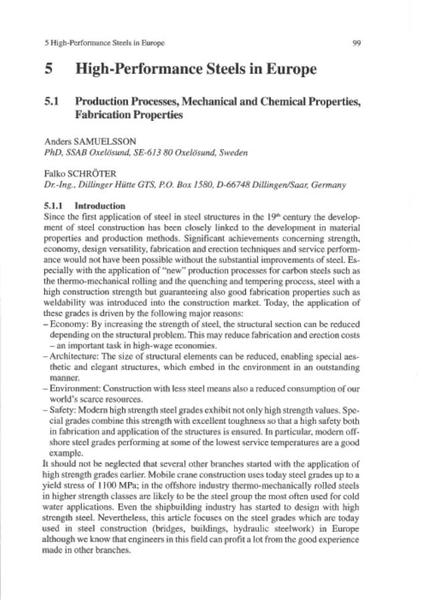High-Performance Steels in Europe

|
|
|||||||||||
Détails bibliographiques
| Auteur(s): |
Anders Samuelsson
Falko Schröter Gerhard Sedlacek Christian Müller Alain Nussbaumer Bernt Johansson Torsten Höglund Peter Collin Alberto Miazzon |
||||
|---|---|---|---|---|---|
| Médium: | chapitre de livre | ||||
| Langue(s): | anglais | ||||
| Publié dans: | Use and Application of High-Performance Steels for Steel Structures | ||||
|
|||||
| Page(s): | 99-146 | ||||
| Nombre total de pages (du PDF): | 48 | ||||
| Année: | 2005 | ||||
| DOI: | 10.2749/sed008.099 | ||||
| Abstrait: |
Since the first application of steel in steel structures in the 19th century the development of steel construction has been closely linked to the development in material properties and production methods. Significant achievements concerning strength, economy, design versatility, fabrication and erection techniques and service performance would not have been possible without the substantial improvements of steel. Especially with the application of "new" production processes for carbon steels such as the thermo-mechanical rolling and the quenching and tempering process, steel with a high construction strength but guaranteeing also good fabrication properties such as weldability was introduced into the construction market. |
||||
